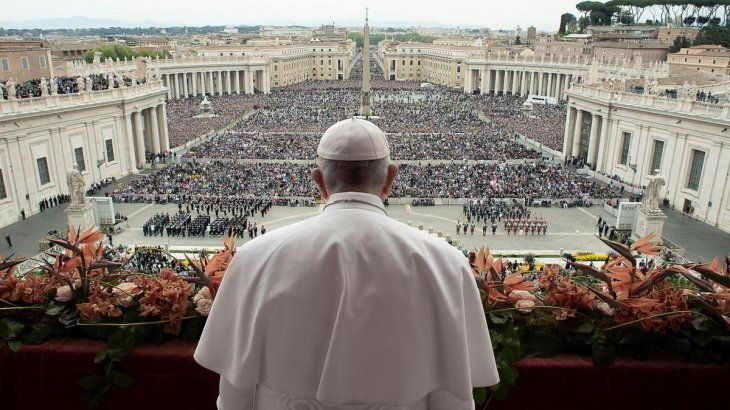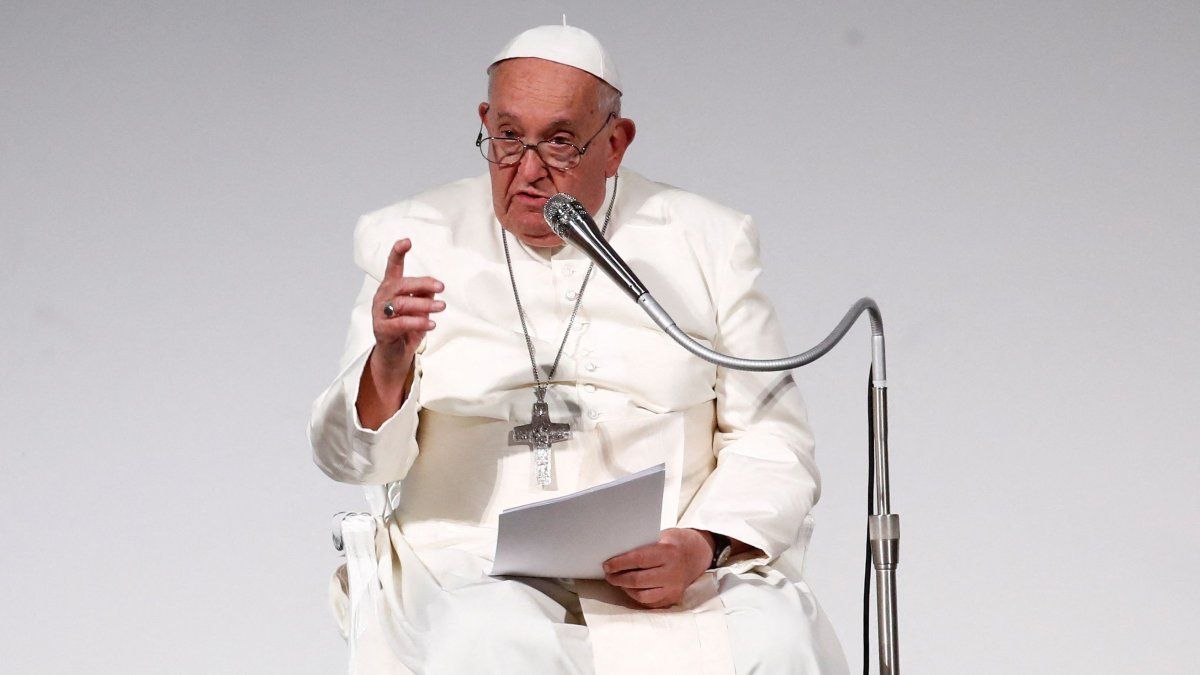Pope Francis The longest and most distant trip of his pontificate begins on Mondaywith a twelve-day tour through four countries in Southeast Asia and Oceania that represents a challenge to his age and fragile health.
The leader of the Catholic Church, in full expansion in Asia, He will fly 32,000 kilometres, give around fifteen speeches and preside over huge masses, all the while dealing with up to eight hours of jet lag.
The odyssey will begin in Jakarta, the capital of Indonesia, where it will be from September 3 to 6before leaving for Papua New Guinea (6th to 9th), East Timor (9th to 11th) and finally Singapore (11th to 13th).
The health of Pope Francis
Pope Francis
The Pope’s trip will focus on interreligious dialogue, ecology, immigration, and the role of the Church in access to health care and education.
Reuters
The trip was planned for 2020 but was postponed in the midst of the Covid-19 pandemic. Until a few weeks ago, doubts persisted in the corridors of the Vatican as to whether the 87-year-old Argentine’s health would allow him to undertake such a tour.
Francis, who normally gets around in a wheelchair or with the help of a cane, underwent major abdominal surgery in 2023 and contracted flu in November, forcing him to cancel his trip to COP28 in Dubai.
“The Pope always thinks that we must go a little further,” “He feels capable of making this trip this year,” said a senior Vatican diplomat recently. “Next year, he will not be so sure,” he added.
The Pope has not travelled abroad for almost a yearThe last time was in Marseille in September 2023. But in recent weeks, Jorge Bergoglio seems to be in good health.
The Pope normally travels with a personal doctor and a nurse, and “nothing new” is expected for this trip, a Vatican source said. “His general condition is good, there were no warnings this summer,” he said.
Even so, The programme has been adapted and includes a day of rest in Jakarta to recover from the 13 hours flight to that Asian archipelago.
The goal of his 45th tour
Francis’ 45th trip abroad will address several of the favourite themes of his papacy: interreligious dialogue, ecology, immigration, the role of the Church in access to health care and education. The aim is to ““to strengthen the sovereignty of the Pope and the role of the Holy See among local Catholics, to create communion”Michal Chambon, a theologian and anthropologist at the National University of Singapore, explained to AFP.
“If the Holy See wants to demonstrate its universality, it must draw closer to Asian traditions, which play an increasingly important role in the international order,” he added.
pope francis crowd.jpg

The trip was planned for 2020 but was postponed in the midst of the Covid-19 pandemic.
Photo: Andina Agency Archive
In Jakarta, the capital of the most populous Muslim country in the world, Dialogue between Christianity and Islam will be the main theme of the visit, with an interfaith meeting on 5 September at the Istiklal mosque, the largest in Southeast Asia. Organisations such as Amnesty International have criticised discrimination against religious minorities in this archipelago of 17,500 islands, especially against Christians.
“Some congregations have been struggling for years to obtain permits. We still have problems with religious tolerance,” confirms Krispurwana Cahyadi, a Jesuit priest and theologian who lives on the island of Java, Indonesia’s most populous island.
In Papua New Guinea, an oceanic country north of Australia, Francis will meet with street children and will move to the remote town of Vanimo, where there is a small community of Argentine missionaries.
The Pope will probably use the visit to renew his call to protect the environment in a country particularly affected by deforestation and natural disasters.
He will then travel to East Timor.a poor country of 1.3 million inhabitants east of the Indonesian archipelago. There, in one of the most Catholic societies in the world (97% of the population), he is expected to address the delicate issue of sexual violence in the Church, which had a high-profile episode in this country.
Bishop Carlos Belo, who won the Nobel Peace Prize in 1996 for his work for the independence of East Timor, was sanctioned by the Vatican in 2020, accused of having sexually abused minors for twenty years.
The odyssey will culminate in Singapore, the cosmopolitan city-state visited 38 years ago by John Paul II, where only 8% of the population declare themselves Catholic. Despite his fragile health, the Argentine Jesuit wants to honour the invitation of these countries, which represent what he calls the “peripheries” of the Church.
Source: Ambito




